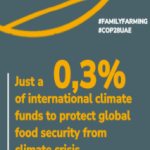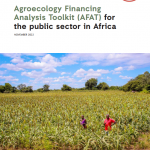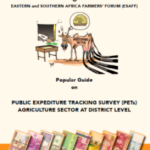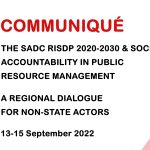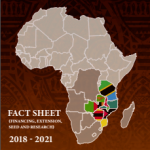Small scale farmers feed Africa, need to up support systems urgent
20-7-2011
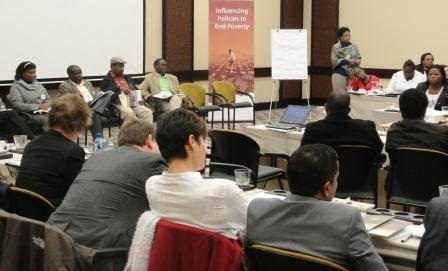
Small scale farmers play a pivotal role in the African continent when we come to feeding the nations. It has emerged that, only South Africa, in Southern African states really depends on large scale farmers for food, export earnings and other agri-based raw materials. The rest, it is the smallholder farmers who call the shots. If only proper systems would be put in place to support such farmers, Africa would become self food sufficient and exporter. This emerged in a regional dialogue in Pretoria, organized recently by IDASA and SAT.
When will African states make good the Maputo Declaration of 2003 on Agriculture? This was a question that baffled speakers at a recent regional dialogue, as they all agreed that supporting small-scale farmers by putting in place necessary system, would go a long way to ensure food sufficiency in the continent. This support can be possible if Maputo Declaration is honoured.
Speakers at the meeting concurred that small scale farmers provide almost 70% of livelihoods and employments to people in the southern African region. This call for government policies, which provides resources for supporting smallholder agri-sector, they said.
Officials from SADC, Ministry of Agriculture in South Africa, researchers, farmers and activities from Eastern and Southern Africa, attended the conference.
For everyone at the meeting, it was a disappointment that in the last two decades, the level of investments by the states is still low despite the declaration, which called on African states to increase the budget allocated to agriculture to at least 10% of the national budgets. It also charges states to ensure the sector grows by 6% annually.
“It is a big shame that our governments are not giving adequate resources and political priority to agriculture… since 2003 to the deadline in 2008/9 and up to now (2011) no country in the southern Africa region have allocated more that 10% of its budget to agriculture except Malawi,” said Elizabeth Mpofu, a small scale farmer in Masvingo, Zimbabwe.
Elizabeth is also the Vice Chairperson of ESAFF. Malawi was cited as an example of where small scale farmers have been able to produce enough food for national consumption and export. Elizabeth said that governments in the region should not see large scale farming and GMO (genetically modified organism) as a solution.
“We haven’t yet explored the available resources and potential of GMO, which will just make us (small scale farmers) slaves to the multinational seed companies as we can no longer use or exchange seeds once are patented and genetically changed,” she emphasized.
Talking about poor organization of small scale farmers in the region, many speakers complained that small scale farmers are not united and they do not speak in one voice. Responding to the issue, Moses Shaha who is a small scale farmer in Mombasa, Kenya and Chairperson of ESAFF said that farmers have come a long way to establish the Eastern and Southern Africa small scale Farmers’ Forum (ESAFF). He said that ESAFF is farmer initiated, farmer led and farmer owned.
He wondered why many partners and willing to support farmers through other organizations instead of directly working with organizations that are led by farmers themselves. Speaking of the same Nancy Kachingwe from South Africa said that people have wrong perception about coming together without any support. She said that the best organized trade unions or political parties have full financial support from the states.
“The best organized institutions have support from the states, when it comes to small scale farmers they are told to organize themselves without resources!” quipped Kachingwe.
Other panelists at the dialogue included Dr. Bentry Chaura (SADC), Tendai Murisa (Trust Africa), Russell Wildeman (IDASA) Johan Bodenstein (INDI FLORA), and Ishmael Sunga (SACAU)

















